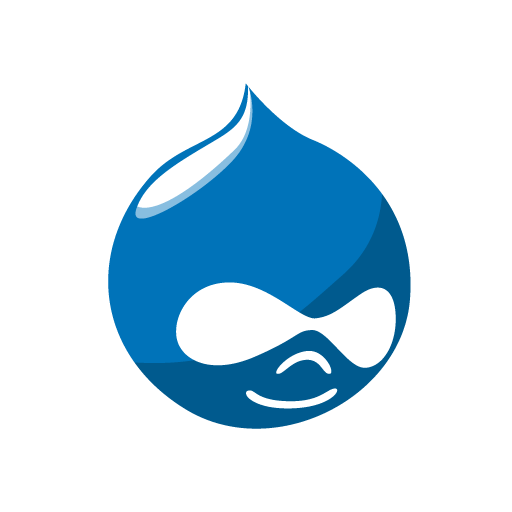Drupal is a free and open-source content-management framework written in PHP.
The standard release of Drupal, known as Drupal Core, contains basic features common to content-management systems. These include user account registration and maintenance, menu management, RSS feeds, taxonomy, page layout customization, and system administration. The Drupal core installation can serve as a simple website, a single or multi-user blog, an Internet forum, or a community website providing user-generated content.
Although Drupal offers a sophisticated API for developers, basic website installation and administration of the framework require no programming skills.

Price Calculator
Data Centers Around the Globe

Frequently Asked Questions
Web server:
Apache 2.4.7 or higher, Nginx 1.1 or higher, or any other web server with proper PHP support.
Database:
MySQL 5.7.8 (or greater)
MariaDB 10.3.7 (or greater)
Percona Server 5.7.8 (or greater)
PostgreSQL 10 (or greater)
SQLite 3.26 (or greater)
Memory:
Memory requirements RAM: Minimum required memory is 1GB to make sure Composer works. If you are running multiple modules or using memory-intensive tools such as Solr, or Memcache, considerably more memory may be needed.
PHP memory requirements: The minimum required memory size is 64 MB, typically 128 MB or 256 MB are found in production systems.
PHP:
PHP version: Drupal 10 requires at least PHP 8.1. PHP 8.1.6 is recommended.
PHP extensions needed: PDO, XML, GD-library, OpenSSL, JSON, cURL, Mbstring.
Disk space:
Minimum 100MB. You will need more space if you install additional modules or themes, and you’ll also need space for media, backups, and other files generated by and uploaded to your site
For more detailed information, refer to the Drupal 10 documentation.
Drupal is a flexible and powerful content management system (CMS) that is suitable for a wide range of web development projects. Common use cases for Drupal include:
Content-rich websites, corporate and business websites, government websites, educational platforms and institutions, nonprofit and community websites, e-commerce platforms, government portals and intranets, media and entertainment platforms, healthcare websites, social networking sites, multilingual websites, event management websites, blogs and personal websites, and community forums.
While Drupal excels in content management and complex functionalities, many alternatives offer comparable features and cater to different niches. Here are some popular alternatives to Drupal:
1. Content Management Systems:
WordPress: Simple to use and highly popular, ideal for blogs, online portfolios, and basic websites. Extensive theme and plugin ecosystem, but less scalable and flexible than Drupal for complex projects.
Joomla: Offers a good balance between ease of use and flexibility, suitable for various website types. Not as widely adopted as WordPress, but features strong community support and multilingual capabilities.
Squarespace: Drag-and-drop interface perfect for visually-oriented users and designers. Limited technical customization compared to Drupal, better suited for smaller websites and portfolios.
Wix: Similar to Squarespace, offering a user-friendly interface and predefined templates. Good for personal websites and simple landing pages, but lacks Drupal’s flexibility and development options.
2. Static Site Generators:
Gatsby: Generates static HTML from content sources like CMS platforms (including Drupal!). Provides fast loading times and security benefits, but requires familiarity with web development technologies.
Hugo: Simple and lightweight static site generator, ideal for blogs and personal websites. Easy to learn and deploy, but lacks built-in features for complex functionalities like user accounts or e-commerce.
3. Enterprise Content Management Systems (ECMs):
Sitecore: A robust and scalable platform for large enterprise websites, offering advanced features like personalization, marketing automation, and analytics. More expensive and complex than open-source options like Drupal.
Adobe Experience Manager (AEM): Another powerful ECM with extensive marketing and content management capabilities. Similar to Sitecore in cost and complexity, targeted towards large organizations with specific needs.
Drupal distinguishes itself through its emphasis on flexibility, extensibility, and fine-grained control over content. While each CMS has its strengths, Drupal is often chosen for projects that require a high degree of customization and complex content management workflows.
Drupal primarily uses SQL (Structured Query Language) to interact with databases.
Here’s why Kamatera stands out as the most compelling option for Drupal hosting:
Cutting-edge hardware: Kamatera leverages Intel Xeon Platinum processors and NVMe SSD storage, guaranteeing exceptional performance for your solution.
Global network reach: With 18 data centers strategically located across four continents, Kamatera provides low-latency access to your server, regardless of your users’ geographical locations. This minimizes lag and ensures consistent performance for geographically distributed teams.
Elastic infrastructure: Kamatera’s infrastructure seamlessly scales to accommodate your growing needs. You can easily add or remove resources on-demand, without downtime or performance bottlenecks.
Industry-leading security measures: Kamatera prioritizes security by implementing data encryption, access control mechanisms, vulnerability scanning, and compliance with industry standards like PCI DSS and SOC 2.
24/7 Support: Kamatera’s dedicated support team is available 24/7 to assist you with any questions or issues you may encounter with your Drupal hosting.